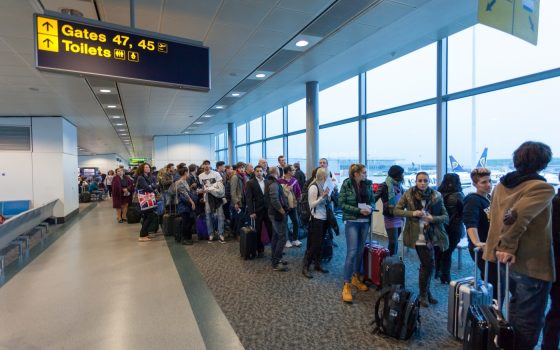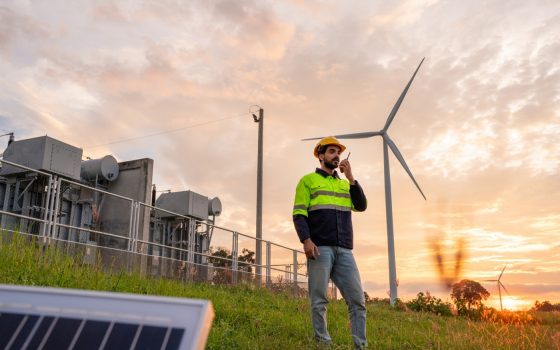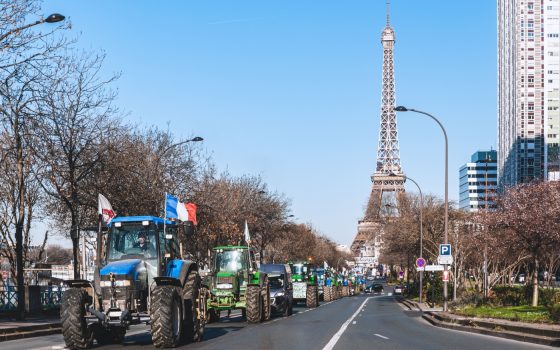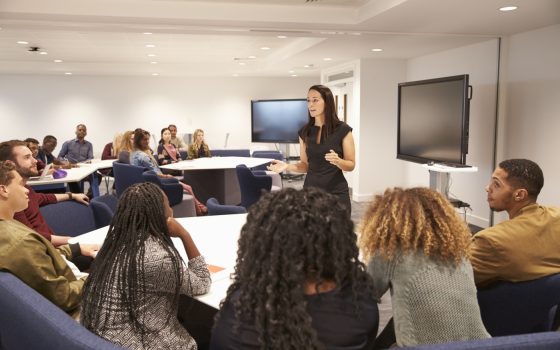A fork in the road
Navigating the fork in the road
02 November 2021
This is the editorial from the fourth issue of the New Economics Zine. You can read the full issue here.
Over the last few years there’s been a transformation in how the public thinks and talks about the climate crisis. Thanks to the work of a new wave of activists, spearheaded by the student climate strikers, it seems like the British public and politicians are finally waking up to the dangers of our addiction to fossil fuels. But with the UK hosting Cop26, the UN climate summit, this month, mainstream attention is on all the wrong things.
After a summer of wildfires in the western US, floods in London, and deadly heatwaves in Pakistan, the International Panel on Climate Change (IPCC) issued its starkest warning yet: the climate crisis is already happening as a result of how we live and power our economies. Governments from 197 countries will meet in Glasgow soon for the UN climate talks, in hopes of presenting plans to limit global heating to no more than 1.5C. Our own government has set a legally binding target to slash our greenhouse gas emissions to net zero by 2050.
But despite all this, we can’t seem to shake the idea that we can solve the climate crisis with an easy fix – whether it’s setting net-zero targets without the plans or investment to back them up, flashy new technologies like hydrogen power, or faith in the ability of the market to resolve any sticky problems.
Alongside cutting our greenhouse gases, this government has also made ‘levelling up’ disadvantaged communities around the country one of their flagship missions. But the government isn’t connecting the dots: we can’t level up and ‘build back better’ from the pandemic without thinking seriously about the climate crisis.
The problems we are facing are big and systemic. Right now, we’re looking down the barrel of global climate breakdown. The climate crisis is a symptom of a broken economic system. This system has also delivered a decade of wage stagnation – and last week the Institute for Fiscal Studies reported that we’re in for a decade more. Our economic system has let people slip through the cracks during the pandemic, left millions feeling squeezed and created rising poverty and inequality. Fixing an economy-wide problem will take rewriting the rules of the economy itself. Yet from the government to the media, all the climate talk is about net-zero targets and techno-fixes – not the things we really need to change.
If we don’t intervene to counter this narrative, we’re in danger of trying to solve the climate crisis by channelling all our energy into a system which will continue to funnel wealth towards a small minority, violently extract natural resources from the Global South, and only keep a small sliver of the global population safe from global heating.
The good news is, at the New Economics Foundation (NEF), alongside other progressive organisations, we have a plan! The Green New Deal is an economy-wide plan that puts the climate crisis and people’s living standards at the top of the government’s agenda. In the face of climate breakdown, it is a practical, bold solution that will not only curb the worst effects of climate breakdown, it will transform our society into one where everyone can thrive. We need a mass reprogramming of the economy so that it works in the interests of people and the planet. If we take the right action on the climate crisis, we can create a society that meets our needs and benefits us all.
That’s what we are exploring in this issue: how we can navigate the murky waters of greenwash and distraction, and figure out how we should really be thinking about the climate crisis.
It’s difficult to talk about the climate, something so invisible and yet all around us. Our climate is not just something which happens ‘up there’ in the sky, but changes to it ripple out through our social, economic and cultural lives. In an extract from her new book, Alice Bell demonstrates how historical changes to the climate have impacted our ancestors, from colonial expansion to the value of Stradivarius violins. Josina Calliste also looks to the past for insights, connecting how Britain’s imperial ambitions affected our ability to produce food without hurting the climate.
Taking the crisis seriously means thinking about how all aspects of our lives will have to change. Luke Murphy talks us through how the public feel about their lifestyles needing to change. In the Conversation, Adam Corner and Greg Cochrane discuss the main climate challenges facing the music industry, from the environmental impact of festivals to the fossil fuels powering digital streaming services. And Joycelyn Longdon reviews Consumed by Aja Barber, a new book which stares the fashion industry in the face and explains how we can use our citizen and consumer power to stop its environmental and human harms.
A lot of hype has been built around Cop26, the UN climate summit hosted in the UK this month. But what actually happens at a UN climate summit? Michael Jacobs explains the ins and outs – and the important limitations – of these massive international events. And Jonathon Porritt warns how putting all our faith in technological solutions is dangerous magical thinking.
The climate movement is diverse and fights on many fronts. Two of these fronts are included in this issue. Lucy Maxwell explains how taking big polluters to court could offer a way to compel them to take action. And Anannya Dayaparan reflects on her time in youth-led activist group Green New Deal Rising, who confront politicians in person, asking them to support the Green New Deal bill in parliament.
Changing the rules of our economy so that it meets everyone’s needs without trashing the environment we depend upon will be challenging, but we’ve included in this issue a few places to start. Head of NEF Miatta Fahnbulleh interrogates our government’s levelling up ambitions to show how we can’t hope to improve people’s lives in this country without a Green New Deal. Aydin Dikerdem explains how we can upgrade Britain’s housing so that everyone can come home to a warm, comfortable place which isn’t powered by fossil fuels – whether we rent a flat or own a castle. And, after decades of industrial change beginning in the 1980s, Rebekah Diski sets out why giving workers more power in our economy would prevent a repeat of the devastating pit closures of the 1980s in our next industrial transition: the one taking us to a zero-carbon, green economy.
If we take the right action on the climate crisis, we can create a society which meets everyone’s needs while averting climate breakdown. We hope this issue is one good place to start.
Image: iStock
Topics Climate change Zine Environment






